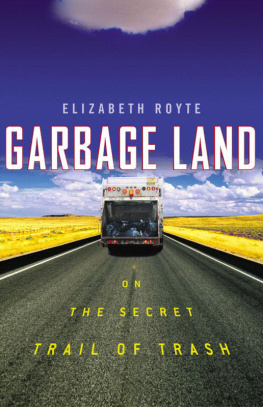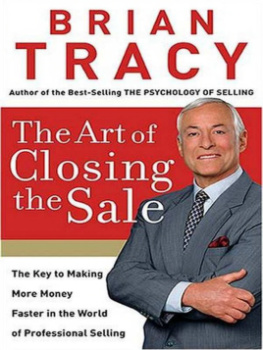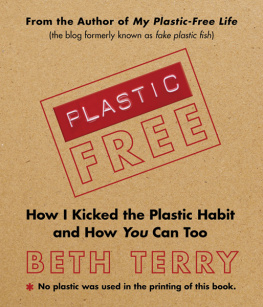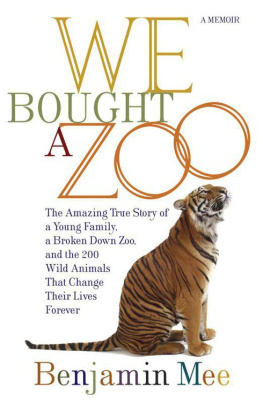Elizabeth Royte - Bottlemania: How Water Went on Sale and Why We Bought It
Here you can read online Elizabeth Royte - Bottlemania: How Water Went on Sale and Why We Bought It full text of the book (entire story) in english for free. Download pdf and epub, get meaning, cover and reviews about this ebook. year: 2011, publisher: Bloomsbury, genre: Politics. Description of the work, (preface) as well as reviews are available. Best literature library LitArk.com created for fans of good reading and offers a wide selection of genres:
Romance novel
Science fiction
Adventure
Detective
Science
History
Home and family
Prose
Art
Politics
Computer
Non-fiction
Religion
Business
Children
Humor
Choose a favorite category and find really read worthwhile books. Enjoy immersion in the world of imagination, feel the emotions of the characters or learn something new for yourself, make an fascinating discovery.

- Book:Bottlemania: How Water Went on Sale and Why We Bought It
- Author:
- Publisher:Bloomsbury
- Genre:
- Year:2011
- Rating:3 / 5
- Favourites:Add to favourites
- Your mark:
- 60
- 1
- 2
- 3
- 4
- 5
Bottlemania: How Water Went on Sale and Why We Bought It: summary, description and annotation
We offer to read an annotation, description, summary or preface (depends on what the author of the book "Bottlemania: How Water Went on Sale and Why We Bought It" wrote himself). If you haven't found the necessary information about the book — write in the comments, we will try to find it.
Bottlemania: How Water Went on Sale and Why We Bought It — read online for free the complete book (whole text) full work
Below is the text of the book, divided by pages. System saving the place of the last page read, allows you to conveniently read the book "Bottlemania: How Water Went on Sale and Why We Bought It" online for free, without having to search again every time where you left off. Put a bookmark, and you can go to the page where you finished reading at any time.
Font size:
Interval:
Bookmark:
Many people generously helped me report this booksome of their names appear in the text. Id like to offer special thanks, in Fryeburg, to Jim Wilfong, Stefan Jackson, and Howard Dearborn, who, despite threatening to throw me in the lake, welcomed me back to Lovewell Pond. Tom Brennan, of Nestl Waters North America, was patient with my questions and unstinting with his time, as was Mike Klender in Kansas City, Jennifer Sass at the Natural Resources Defense Council, and Emily Lloyd and Steven Schindler in New York City. Thanks to Lisa Reed for the NEWater, to Leigh Baker for research assistance, and to Joshua Royte for fine lodgings and botanical guidance.
There have been several books written about the global water crisis, all of them increasingly important as we diminish this most precious of natural resources, and Im grateful to have had the benefit of those authors experiences (see Selected Bibliography and Further Reading). Special thanks to the Overbrook Foundationwhich supports many remarkably effective conservation projects and whose financial support made researching and writing this book in a short time possible and at times even pleasantand to Daniel Katz, who was particularly enthusiastic. A tip of the hat to Jonathan Gregg at the Vermont Studio Center for his timely intervention. Portions of this book appeared in altered form in Grist magazine, thanks to Tom Philpott, and in the New York Times, thanks to Frank Flaherty.
For helping me navigate among many twisting channels of reporting, Im indebted to my editor, Gillian Blake, who held up green lights and red lights as needed. Finally, this book wouldnt exist without the advice and encouragement of my husband, Peter Kreutzer, who, in addition to editorial heavy lifting, suffered my lamentations, cooked nonstop delectable meals, and wrangled Lucy, my ultimate audience and inspiration.
IN NOVEMBER 2008, a few months after the hardcover of Bottlemania went on sale, a new James Bond film opened across America. Released under the baffling title Quantum of Solace, the movie features a very different kind of Bond villain, presenting a very different kind of threat. The megalomaniac Dominic Greene isnt trying to mount a space-borne laser to menace the people of earth; instead, he angles to control the worlds water, converting it from a basic human right into an insanely profitable commodity.
If this was fluffy entertainment, it was also a sign of the times, one that reflected a subtle shift in the cultural landscapeor at least the part concerned with personal hydration. Growing concerns about the privatization of water, including water for bottling, conflicted with concerns about the ability of government to safeguard what we drink. When the Associated Press reported in March 2008 on low levels of pharmaceuticals detected in tap water, every major news outlet pounced on the story. Groups that condemn bottled water responded with calls for increased investment in municipal water supplies and reminded the public that, since much of bottled water comes from tap water sources, we cant be sure its drug-free, either.
Across the country, the threat of new boreholes and bottling plants was spurring people to think about where their water comes from, at what cost, and how much of it is leftbig news in a world apparently more concerned with downloading the latest mobile phone app than the state of our natural resources. The fight against pumping from springs also led to the introduction or strengthening of regulations that protect groundwater. But as concerned citizens began to think more about what they were drinking, more questions arose: Whats best for my family and me? Whats best for my bud get? Whats best for the environment? And what if the answer to all three questions isnt the same?
The bottled-water industry was chasing its own villains as well. A day before Bottlemanias official release, the International Bottled Water Association (IBWA) released a media advisory headlined Bottlemanias Focus on Bottled Water Dilutes the Real Environmental and Drinking Water Challenges and Opportunities. (Perhaps in his rush to make deadline, the author of the press release missed those chapters on the importance of protecting watersheds, fixing municipal pipes, and improving water treatment plantsalmost a third of the book.) And in November 2008, the Financial Times reported that Bottlemania was held up as serious cause for concern at the annual conference of the British bottled water industry this month. Industry executives fear the work, which was published in May, could be as influential on public sentiment as Eric Schlossers... investigation into the American fast food industry, Fast Food Nation.
Whether or not a comparison of the two books is apt, theres a reason this kind of talk concerns the water industry. In 2008, bottled water sales in the United States saw the slowest growth since 1991, when Paula Abdul had a Top Ten hit and there was no such thing as a water aisle in most American grocery stores. The U.S. market for bottled water grew just 2.3 percent in 2008, compared with about 8 percent in the previous two years. Part of the reason was the teetering economy: Consumers who once considered bottled water an affordable indulgence now slake their thirst with local tap water. But the turn against the bottle began before the collapse of Wall Street, as anti-bottled water groups and more general-interest greenies harped on the environmental footprint of the product.
Such messages resonated not only with tree huggers. In June 2008, the U.S. Conference of Mayors passed a resolution that encouraged cities to phase out, where feasible, government use of bottled water and promote the importance of municipal water. As of January 2009, more than sixty mayors (plus the entire Berkeley, California, school district) had cancelled their bottled-water contracts, and the advocacy group Corporate Accountability International was pressuring governors to do the same. In March, all of Connecticut took the leap, saving an estimated $500,000 a year. In Canada, a dozen municipalities, including Toronto, one school board, and twenty-one colleges and universities had quit their contracts as well. Every few weeks or so, another U.S. restaurant struck bottled water from its menu. College campuses were installing and repairing water fountains, selling reusable bottles, and ejecting Aquafina and Dasani from their branded vending machines. U.S. sales of home water filters increased 16 percent in the first half of 2008 (hats off to the grassroots Take Back the Filter campaign, which successfully pushed Brita to collect its used filters, at participating stores, and recycle them), and sales of reusable bottles also continued to riseall bad news for purveyors of bottled water.
The industry faced problems on the supply side, too, as tiny towns across the nation grew increasingly anxious about controlling their water. In the year after Bottlemania came out, Enumclaw, Washington, and Kennebunk, Kennebunkport, and Wells, Maine, rebuffed Nestls advances on their groundwater. Shapleigh and Newfield, Maine, which sit atop the same aquifer, went a step further and banned the sale of their water outside their borders. In Massachusetts, New Hampshire, New York, Tennessee, and Colorado, citizens called for restrictions on largescale withdrawals of groundwater for bottling. In northern Florida, after hundreds of residents demonstrated against spring-water pumping along the Santa Fe River, county regulators denied the company a withdrawal permit, citing unacceptable threats to river flow and spring levels.
A short time later, Florida Governor Charlie Crist proposed a six-cent-per-gallon state tax on water pumped by commercial bottlers. Nestl countered with an alternative proposal to impose a six-cent tax on every bottle purchased by consumers. When a state representative in Maine introduced a bill calling for a penny-a-gallon tax on extractors, the companys Mark Dubois said, This reduces our ability to compete in a very competitive market. The same argument was made on the other side of the world: When the Fijian government in mid 2008 taxed exports of Fiji Water, the American-owned company squawked until the tax was repealed.
Font size:
Interval:
Bookmark:
Similar books «Bottlemania: How Water Went on Sale and Why We Bought It»
Look at similar books to Bottlemania: How Water Went on Sale and Why We Bought It. We have selected literature similar in name and meaning in the hope of providing readers with more options to find new, interesting, not yet read works.
Discussion, reviews of the book Bottlemania: How Water Went on Sale and Why We Bought It and just readers' own opinions. Leave your comments, write what you think about the work, its meaning or the main characters. Specify what exactly you liked and what you didn't like, and why you think so.










